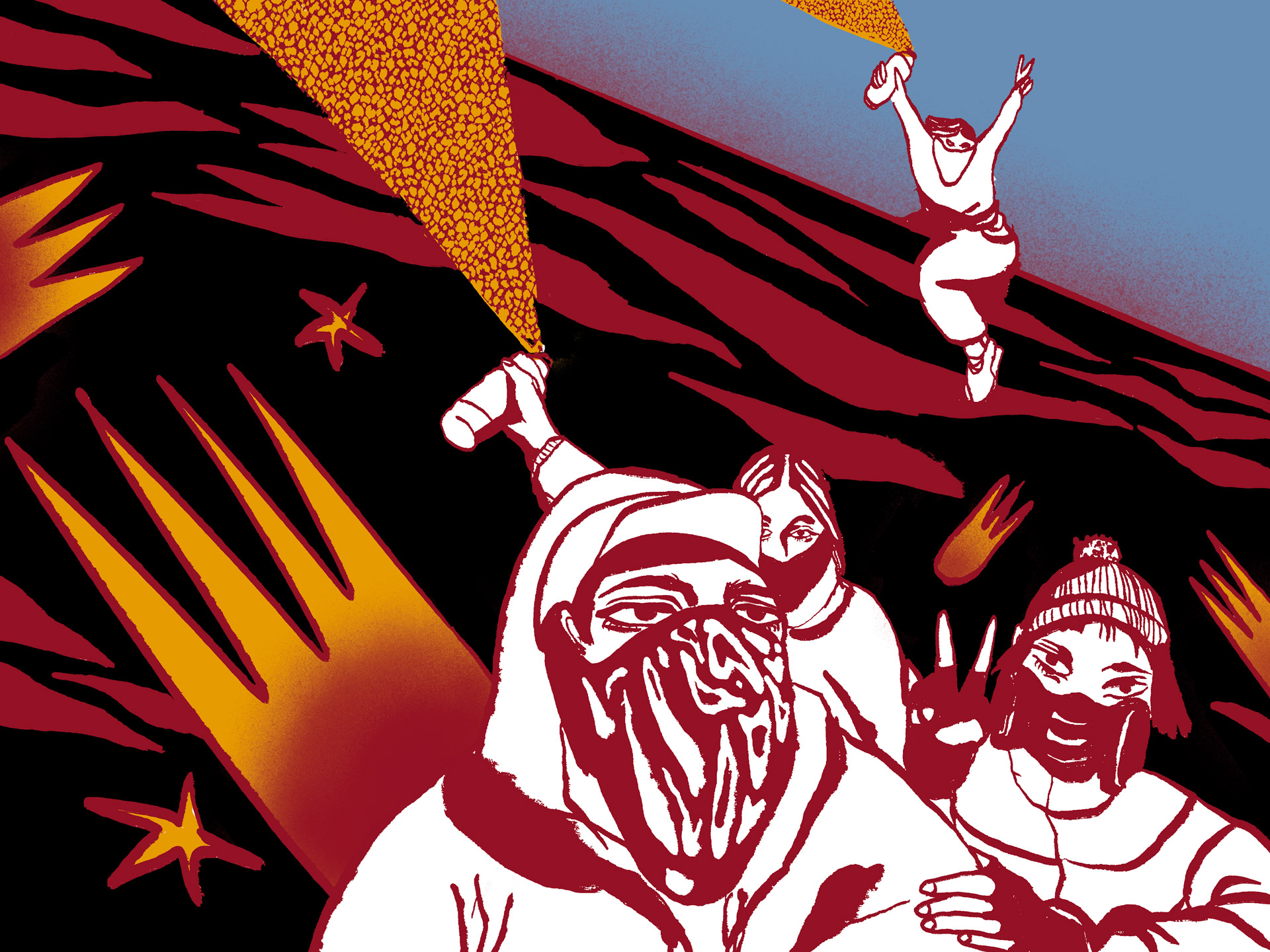Intimidation & Surveillance
Intimidation & Surveillance
“Initially, when I was writing articles on the mining issue, mining company representatives spoke to my relatives in my village—especially my brothers—to try to influence me to either retract or change the content of the articles. Then they came to public community discussions about the mining project and would start yelling, shouting, and behaving in a way that would impact me psychologically. The intimidation escalated as problems with the mining project intensified. The local population was seeing the negative effects of the mine—polluted drinking water, dust on the trees in their orchards, effects on their skin—which gave rise to this big resistance where they blocked the road to the mining site and stopped the project.
“During this period, when people connected to the mining company started following me, I was under surveillance—both myself and other activists. This included taking pictures of me in my house and publishing them on social media. The photos were taken by my neighbor who shared them with a private security officer of the mining company. In the posts, they said I was hosting the person who was investigating the mining project in my house, suggesting I was providing sexual services; people wrote things like, “She is a whore.” Because the company had a lot of financial resources, they promoted this really nasty content as ads on social media using fake profiles and fake pages, which then would be deleted after they reached a certain number of people, like 100,000. In the end, nobody was held accountable. And I was not the only one who was targeted; there are many other activists facing serious backlash. For example, the mining company posted photos of another activist, who is a mother, with her child, and targeted her in very personal ways, suggesting she was getting pregnant every day she spent on the blockades and that it was not clear who her child’s father would be.
Violent Provocation
“There were also violent actions by the company against the local population and protesters. These were things that I was covering and writing about, and why I called the company “criminal.” I said, “it is committing crimes, and it is inciting hostilities and disputes,” and this was the reason why the company sued me and won the lawsuit. I am now obligated to pay a fine and legal fees.
“The peak was a few months after the roads were blocked by activists to the mining site, when the company brought hundreds of its employees and was actually forcing itself through the blockade, into the mining site, and they were using violent force, including stones to push through the human barrier created by the locals. I was a witness; there were people bleeding, people with lots of bruises on their faces and around their eyes.
“During protests, there were even instances of the security guards physically hitting, for example, the head of the police department. The police never press charges against the security guards or mining company, though, but are very fast to press charges against the opponents of the mining project.
Credit: Piotr Arnoldes
People connected to the mining company started following me…. This included taking pictures of me in my house and publishing them on social media.
Irina, journalist and environmental activist



Credit: Dids
A Web of Impunity
A Web of Impunity
“The company has its protectors. The chief of police’s wife was employed by the company, while the mayor benefitted from corrupt land transactions with the company. The minister who signed the final permit for the mining project is a brother or close cousin of the lead environmental impact investigator. We drew attention to this, as if the results of that would change anything. Eventually the case was closed and we knew that they were going to say: that there was no crime.
“The US and UK embassies play an especially powerful role. The UK embassy collected personal profiles on activists while the US embassy convened meetings with civil society organizations to convince them to back off from protesting against the mining project. The US embassy also purportedly summoned a small group of people to say that unless the country changes its attitude towards the mining project, the embassy will not change its position on another key issue. This is very direct and nasty bargaining.
Costs of Backlash
“Your personal life is completely impacted when you are an environmentalist, when you protect nature. I developed an autoimmune disease, and found out that I have a thyroid issue. The more I research this condition, the more I am convinced that my physical health is impacted by my emotional state. And it’s not just me—all the people involved in this have some sort of health issues that we developed due to our active involvement in this campaign. And we don’t have psychological support. We are trying literally not to drown.
“I am also engaged in a number of costly legal cases. In addition to being sued myself, I have also sued the government, with the company involved as a third party. They are constantly in court. So I am actually a cost also to the company in a way. I have created so many problems for them that they now also have to spend money to hire lawyers.”
Credit: Life of Pix
In the end nobody was held accountable. I was not the only one who was targeted; there are many other activists facing serious backlash.
Irina, journalist and environmental activist



Karen Keyrouz